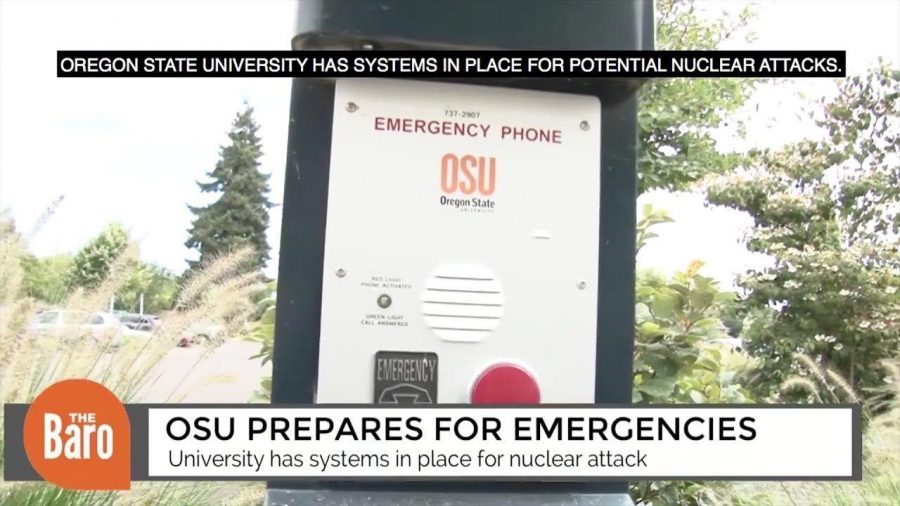Beavers recovering after witnessing tragedy
September 4, 2017
On Aug. 17, the Oregon State University men’s basketball team witnessed an attack in Barcelona, where an individual drove a van through a pedestrian area, killing 14 and injuring over 100. The Beavers were in Spain on a 13-day trip to play five exhibition games and were scheduled to play their first game on the day of the attack, according to the team’s website. The team was leaving the lobby of their hotel when the attack took place right outside the building, according to Vice President and Director of Athletics Scott Barnes. Nobody traveling with the team was harmed, but many witnessed the tragic incident, Barnes said.
According to Steve Clark, OSU vice president for University Relations and Marketing, 16 people associated with OSU, in addition to those traveling with the men’s basketball team, were also traveling in Spain at the time, and all were deemed to be safe.
“(After the attack) most members of the OSU team traveling party remained in their nearby hotel, while a few others who were temporarily separated from the main OSU traveling party remained in safe locations as instructed by local public safety officials,” Clark said in an email.
Shortly after the attack, the team released a video in place of media correspondence. In the video, Head Coach Wayne Tinkle impressed upon the OSU community the great emotional toll of witnessing such an act.
According to Barnes, the athletics department made sure that everybody traveling with the team who witnessed the attack had access to whatever mental health support they needed, making daily contact and opening a line to talk about what had transpired. Barnes noted that the team’s spirits seem to have begun to improve.
“The competition is serving as a way to bring some closure and focus to why they are there,” Barnes said. “In a very unfortunate manner, this has brought them closer together.”
Speaking on the motivations that fuel attacks like this, Jose-Antonio Orosco, an associate professor in philosophy and director of the Peace Studies certificate program at OSU, pointed out that the basis for political violence depends heavily on its historical context.
While political violence by non-state actors came predominantly from national liberation or secessionist movements for much of the 20th century and into some of the 21st century, more recently individuals engaged in political violence tend to be motivated by ideology and a sense that conflicting worldviews threaten the moral order of their lives, according to Orosco.
“In the case of terrorist violence in the 21st century, a lot of it is in response to the instability and failed governments in the Middle East, and those were brought about by much more powerful nations such as the Soviet Union/Russia and the United States competing for strategic hegemony in the region,” Orosco said in an email.
According to Orosco, responses to this type of violence usually take the form of either military action or police enforcement against attackers. However, Orosco also noted that alternative nonviolent approaches exist, such as building political and economic equality to address some of the societal factors that lead people to turn to political violence.
“Nations also negotiate with non-state actors in some cases, such as in Colombia, Ireland or Israel,” Orosco said. “Some studies have shown that military responses tend to be less effective in reducing this kind of violence than relying on negotiation or police enforcement.”
On the university level, response to this attack has mainly focused on ensuring the physical and mental well being of the travelers who were affected by the incident. According to Barnes, the athletics department has made it a priority to continually offer access to any psychological support that may be beneficial going forward to those who witnessed the attack or the aftermath.
“The thing we’ve got to be vigilant about is understanding the landscape worldwide relative to safety and yet not take opportunities like this (to travel abroad) away from our students,” Barnes said.
To view Tinkle’s video statement click here.










































































































